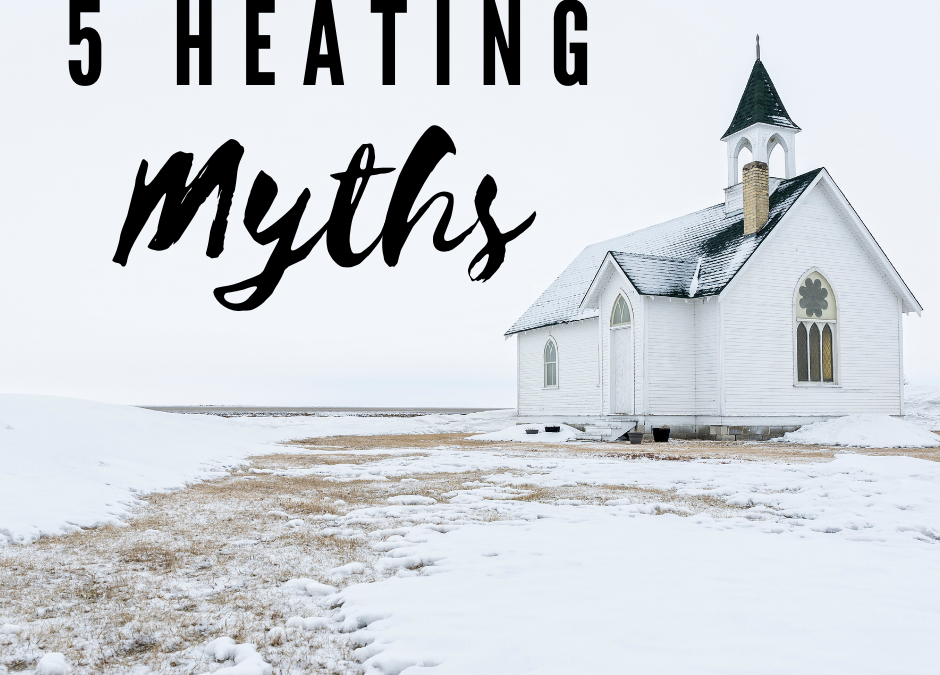Winter is a tough time for many homes, let alone churches, with the sheer amount of space to heat and the outdated heating measures in place across many locations in the UK. Our team here at Church Heating Specialists aim to help our clients, save thousands and reap the benefits of a new, upgraded heating system.
In the meantime, if you are looking for some quick fixes to help keep those heating bills to a low, then here are 4 general heating myths that could actually be costing yourself more than you think.
Saving money is essential, yet giving your visitors a comfy experience is even more vital!
1. Turning the heating up when it’s cold outside
Yes, we have all been there, it’s cold outside so the first port of call is to turn the heating up. This is where many churches may actually be racking up some incredible costs for their heating bills.
Your heating is actually in place to impact the interior temperature, not the exterior.
Meaning, it may be cold outside however inside your church, it may still be sufficiently warm or far higher than the cold outside. With you pre emotively turning the heating on, you are wasting potential you already had in place.
2. It’s cheaper to avoid radiators
We really hope that people who are heating a church don’t follow the same rule as homeowners, and avoid a radiator!
In fact, a radiator could be one of the better choices for your church to effectively heat your space with as little waste as possible.
This doesn’t mean you can leave them on 24/7, as this would still rack up a large cost.
3. Painting your radiators black will save you money.
The old tale is that black absorbs heat better. This doesn’t stop the heat from escaping your room. It would be a better idea to have reflective panels across every wall, door and gap to reflect all heating back into your room.
This is far from ideal to fulfil though.
4. The larger the boiler, the better it is!
Size doesn’t always matter,
In a church, you are frequently trying to heat larger spaces so it’s more common to see larger boilers, however, having a big boiler doesn’t mean it is more cost-effective. It would be good to seek professional advice to see the perfect fit. Without wasting any energy to heat your property.



Recent Comments